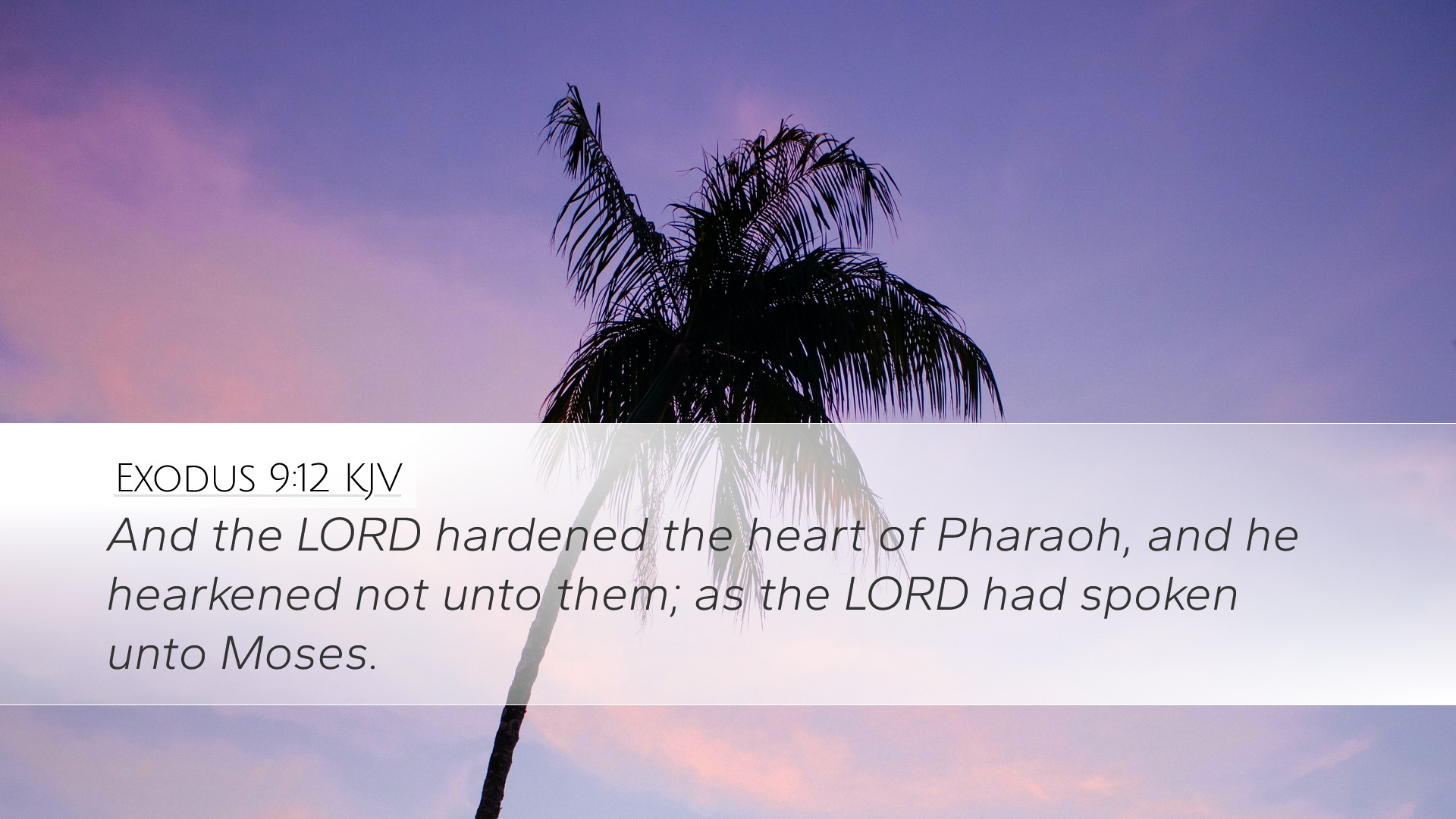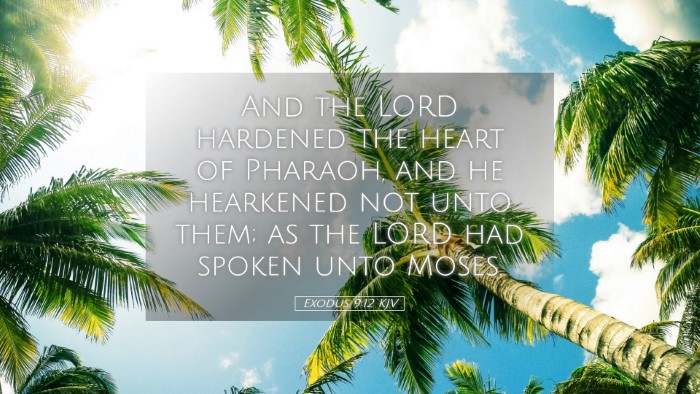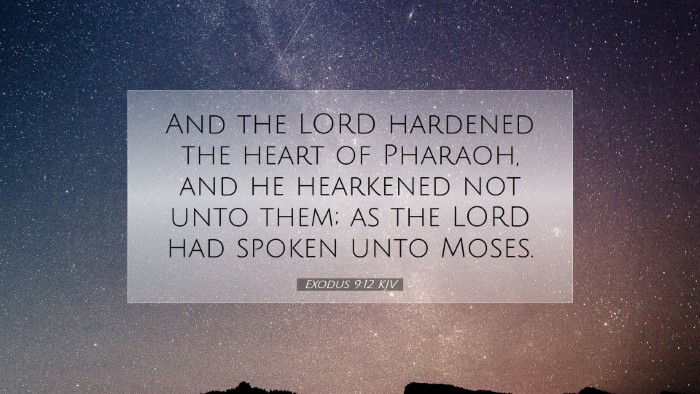Commentary on Exodus 9:12
Exodus 9:12 states, "But the Lord hardened the heart of Pharaoh, and he hearkened not unto them; as the Lord had spoken unto Moses." This verse is pivotal in understanding the sovereignty of God in the narrative of Exodus and His interactions with Pharaoh. Below, we draw insights from esteemed public domain commentaries.
Understanding Divine Sovereignty
Matthew Henry emphasizes that the hardening of Pharaoh's heart is part of God's sovereign plan. He notes that Pharaoh was given multiple opportunities to respond to God's commands, but his persistent rebellion necessitated a hardening. This hardening serves a dual purpose: it displays God's power and justice while allowing Pharaoh to reflect the natural disposition of his own heart. God's action here illustrates the profound interplay between divine sovereignty and human free will.
Albert Barnes further elaborates that God's hardening of Pharaoh's heart does not negate Pharaoh's responsibility. Instead, it highlights that Pharaoh was already predisposed to resist God's will. Barnes posits that this hardening was not merely punitive but also a means through which God intended to demonstrate His glory and the futility of opposing divine will. This raises essential discussions about the nature of God's justice and mercy.
Adam Clarke adds depth by suggesting that God's hardening involved allowing Pharaoh's inner motivations and inclinations to come to the forefront. Clarke interprets this as God withdrawing His restraining grace, thereby allowing Pharaoh to pursue his already predilected course. The hardening, then, serves as a historical lesson in the dangers of pride and obstinacy against God’s clear directives.
Theological Implications
-
Potency of God's Revelation: The events surrounding Pharaoh underscore the theological reality that God reveals His will to humanity and expects obedience. The persistence of Pharaoh's refusal constitutes a powerful warning against hard-heartedness.
-
God's Justice: The narrative highlights that divine justice often operates within a framework where individuals have the free will to embrace or reject God. God's hardening of Pharaoh's heart does not absolve him from culpability for his actions, but instead fulfills God's purpose in the grand narrative of redemption and judgment.
-
Historical Context: Understanding the context in which Exodus was written helps elucidate why this event was significant. God’s actions against Pharaoh are a theological paradigm for His deliverance of Israel and the condemnation of those who oppose His will.
Practical Applications for Leaders and Scholars
For pastors and theologians, the complexities surrounding Pharaoh’s heart expose critical themes for their congregations:
-
Encouragement to Response: The narrative challenges leaders to encourage their congregations to respond deeply to God's revelation, alerting them against the dangers of hardening their hearts.
-
Understanding God's Plan: It reminds them to have a comprehensive view of God’s plans and purposes, which may include difficult paths of judgment and mercy.
-
Empathy towards the Hardened: Understanding that individuals may harden their hearts can cultivate compassion toward those who seem unresponsive to God's call.
Conclusion
Exodus 9:12 is a tapestry of divine sovereignty, human responsibility, and the stark realities of spiritual obstinacy. The commentaries of Henry, Barnes, and Clarke converge to illuminate the struggles and triumphs of God’s people as they navigate through challenges imposed by the hard-hearted. As we reflect on this verse, we are invited to consider the deeper implications of responding to God's will and the importance of a heart oriented towards obedience.


